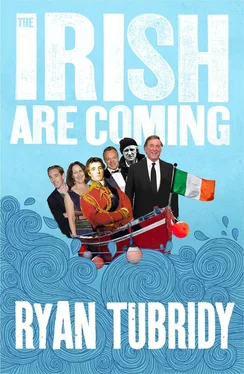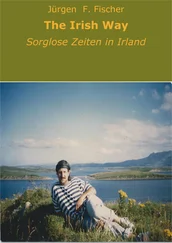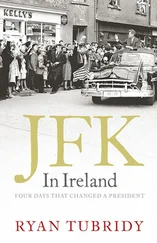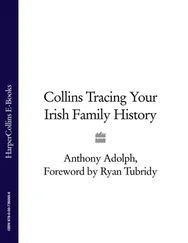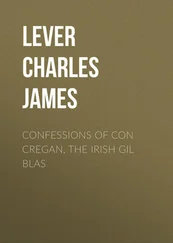Jonathan’s own life story couldn’t be further removed from that of the most married monarch of them all but you can tell there’s plenty more to come from him. Although he’s already shown his versatility in going from the King of Rock’n’roll to the King of England, I personally think this actor’s best years lie ahead of him if he can keep the demons at bay.
He rejects the hellraiser label, saying: ‘I kind of like people having this idea that I’m this wild rebellious guy. But the reality is that I’m not, and I’m not quite sure I want to reveal how boring my life is. Of course, as a young Irish actor you’re tarred before you start. It’s the enduring cliché.’
What I think he’s got in common with the other Irish hellraisers is the ability to play edgy, troubled and explosive characters – perhaps because he’s got all that Celtic rage bottled up inside him. Let’s park this one for now as ‘work in progress’.
* * *
It’s curious that all three of the hellraisers I’ve featured here came from difficult backgrounds and fought to achieve their success. They’ve got an irrepressible, restless spirits and boundless raw talent. Perhaps that self-destruct gene can be channelled into creativity, supplying the high-voltage electrical power that each of them possesses as an actor. Of course, you don’t have to have an intense love affair with liquor to be a great actor – there are loads who don’t, some of whom I’ve featured in Chapter 7 Конец ознакомительного фрагмента. Текст предоставлен ООО «ЛитРес». Прочитайте эту книгу целиком, купив полную легальную версию на ЛитРес. Безопасно оплатить книгу можно банковской картой Visa, MasterCard, Maestro, со счета мобильного телефона, с платежного терминала, в салоне МТС или Связной, через PayPal, WebMoney, Яндекс.Деньги, QIWI Кошелек, бонусными картами или другим удобным Вам способом.
. But the drinker’s unpredictability gives them an edge and makes you feel you don’t quite know what they’re going to do next – even when they’re sober.
2 CONTENTS Cover Title Page Dedication For Mum and Dad Thank you for history, humour and love. Introduction The Hellraisers The Comedians The Chat Show Hosts Politicians, Soldiers and Reporters The Artists The Writers The Thespians The Musicians The Boy Bands The Harry Potter Bunch The James Bond Franchise The Businessmen Conclusion Notes Acknowledgements Also by Ryan Tubridy Copyright About the Publisher
THE COMEDIANS CONTENTS Cover Title Page Dedication For Mum and Dad Thank you for history, humour and love. Introduction The Hellraisers The Comedians The Chat Show Hosts Politicians, Soldiers and Reporters The Artists The Writers The Thespians The Musicians The Boy Bands The Harry Potter Bunch The James Bond Franchise The Businessmen Conclusion Notes Acknowledgements Also by Ryan Tubridy Copyright About the Publisher
IF YOU WANT TO SEE how much Anglo-Irish attitudes have changed over the last decades, just take a look at the humour. The Bernard Manning era when every paddy was an idiot and ‘How many Irishmen does it take to change a lightbulb?’ jokes were ten-a-penny have long gone. It would be like doing a joke about a Pakistani or a black woman or a gay man: it’s not only politically incorrect but can be illegal and every right-thinking person considers them bad taste. Of course, in Ireland we’re allowed our own self-deprecating humour but it’s got to be on our own terms. We’ll crack a joke about ourselves and call ourselves paddies – but the British are not allowed the paddywhackery now, and some Irish people even got a bit hot under the collar in the 1970s when Dave Allen dipped into it.
Perhaps it’s because it’s not too long ago that the Irish were seen as Punch magazine cartoon images: the potato-eating famine refugee, the drunk navvy or the balaclava-clad terrorist. As recently as the 1980s and maybe the early 90s these were the stereotypes propagated, particularly in right-wing elements of the media. Every Irish comedian who came over to Britain from 1967 to 1997 had to drop in a few gags about terrorism just to get it out of the way because otherwise it was the elephant in the room. But the peace process changed everything, virtually overnight. It changed the acceptability of being Irish in Britain, it changed the nature of comedy and it changed the portrayal of Ireland in the media. Neil Jordan’s 1992 (pre-peace-process) film The Crying Game was revolutionary enough for showing an IRA man falling in love with what he thought was the girlfriend of a British soldier. But now in 2013 we see Gillian Anderson in The Fall , which is about a psychopath running around Belfast killing women and there’s not an ArmaLite or a terrorist cell in sight. It’s a huge cultural, political, historical shift in the right direction.
By the beginning of the twenty-first century, comedians had torn up their jokes about terrorists, drunken builders and women with twenty-five children. All that is a clichéd bore. We don’t laugh at Irishness any more; we laugh at what’s genuinely funny – and that’s what’s made it possible for us to enjoy the ironic post-peace-process sitcom Father Ted . Maybe in the past we would have been a bit more sensitive about the three priests banished to Craggy Island for their misdemeanours but now it’s just pure comedy and we’re all laughing together.
It’s not that the Irish are po-faced when it comes to humour. On the contrary, we use it to end an argument, to alleviate sadness or to poke fun at ourselves, but all self-references must be on our terms. And if there’s one thing that’s always been fertile territory for Irish humour, it’s having a dig at authority. As a people we’re instinctively, unfailingly anti-authoritarian, probably because of all those centuries of resisting British authority. It’s bred into us from an early age; it’s in the water. The first comedian I’m going to talk about in this chapter is the one who first made his name for attacking the biggest authority of the twentieth century: our very own Catholic Church (those of a sensitive disposition may want to make the sign of the cross before reading on).
DAVE ALLEN: the funniest man in the pub
6 July 1936–10 March 2005
I’m bothered by power. People, whoever they might be, whether it’s the government, or the policeman in the uniform, or the man on the door – they still irk me a bit. From school, from the first nun that belted me …
I remember as a young boy, pyjamas on, sitting on the couch beside my dad and watching him as he chuckled while watching a man on the television. The man was roughly my dad’s age (ancient) and appeared to be drinking a whiskey with one hand, occasionally smoking and repeatedly removing non-existent lint from his trousers. It was Catholic Ireland so when this mild-mannered man dressed up as a bishop and started doing fart jokes, I realized we were witnessing a bold man – a very funny, bold man.
The comedy that struck a chord in our house when I was growing up ranged from The Muppet Show through to Tommy Cooper via Dermot Morgan and Basil Fawlty and on to Dave Allen. As a family, we appeared to enjoy anarchic yet droll humour that was rarely vulgar but always clever with a twist of mischief. Dave Allen embodied all of these traits. It was dad humour. Everyone’s dad loved him. He was that intriguing paradox of being gentle but cutting, intelligent but accessible. You didn’t need a degree to get his jokes – just an ability to share his observations.
Читать дальше
